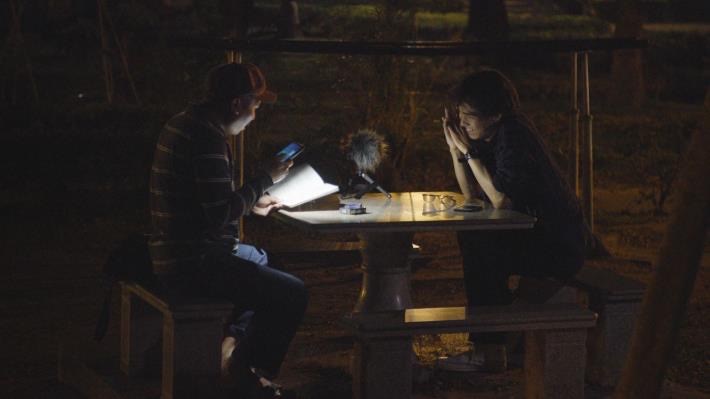The award-winning Taiwanese documentary Taman-taman (Park) is set to make its New York debut at the prestigious First Look Film Festival on March 13. Directed by renowned filmmaker So Yo-hen, the film captures the lives of two Indonesian migrant poets in Taiwan who transform their personal struggles and shared experiences into poetry during nighttime gatherings at Tainan Park.
Through a unique blend of storytelling and artistic expression, Taman-taman (Park) highlights the challenges faced by migrant workers, shedding light on their resilience, identity, and sense of belonging in a foreign land. The documentary blurs the line between reality and art, as the two poets become both the narrators and subjects of their own poetic journey.
The film has received critical acclaim and multiple awards, including the grand prize in both the Taiwan Competition and the Asian Vision Competition at the 2024 Taiwan International Documentary Festival. It also earned an Outstanding Artistic Contribution Award at the 2024 International Documentary Film Festival Amsterdam (IDFA), further cementing its status as a significant work in the global documentary scene.
The First Look Film Festival, running from March 12-16, is known for showcasing groundbreaking films and emerging talent. Taman-taman (Park) will be screened at the Museum of the Modern Image’s Bartos Screening Room, with director So Yo-hen in attendance. While organizers have not confirmed a post-screening Q&A session, his presence adds to the significance of the event.
For audiences in Taiwan, the documentary will be screened on March 6 at the National Tsing Hua University bookstore as part of the 2025 Taiwan International Documentary Festival. The screening will be followed by a discussion session with So Yo-hen, offering viewers deeper insights into the film’s themes and creative process. Admission is free, but attendees are encouraged to sign up in advance due to limited seating.
By bringing attention to the voices of migrant workers through poetry and film, Taman-taman (Park) serves as both a cultural and social commentary, encouraging dialogue on the lives of foreign laborers in Taiwan and beyond.

